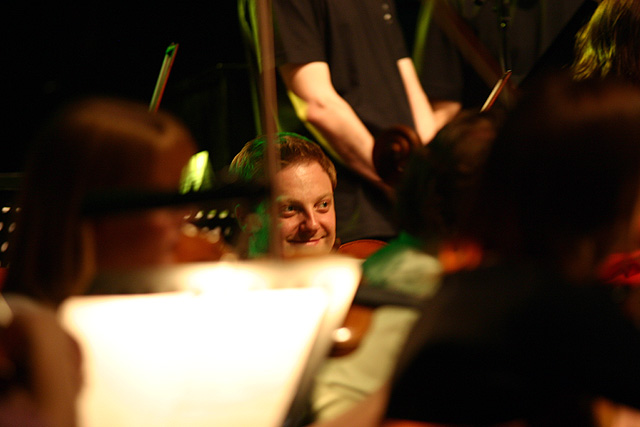I’ve been rather quiet over the last few weeks. This says a lot about quite how much I’ve had to be getting on with. I’ve realised that a great many of my recent posts deal with political issues in some form or another, so I thought for a change that I might move on to a somewhat loftier subject...
The Eurovision Song Contest has always been one of the highlights of my year. As a child I used to watch it to listen to people singing in fascinating and incomprehensible European languages – something which sadly disappeared from the competition some time in the mid 1990s. Since the repeal of the rule about singing in your own language, another constant source of amusement has been to listen to many weird and wonderful things that apparently count as ‘English’, especially in the entries from Eastern Europe. [One of my favourite examples is the 2002 Russian entry ‘Northern Girl’ performed by boyband Prime Minister. What endearing pronunciation!]
This year’s contest held particular interest by virtue of its being held in Helsinki. A year ago, nobody could have predicted the landslide victory of monster rockers Lordi. In keeping with the trend of previous years, the 2007 competition offered up another cavalcade of drag queens and freak shows in addition to the more traditional boybands and power ballads. The Ukrainian entry, a drag queen clad in tin-foil and chanting numbers in German, was a marvellous parody of old DDR music (and even reminded me of the Leningrad Cowboys); the Slovenian opera singer was solid, though entirely out of place, while the Irish group Dervish were simply out of tune; and as for the British entry... Make it stop!
The winning entry from Serbia, Molitva sung by Marija Šerifović, was a good winner for many reasons: it was a powerful song, not an empty, high-energy dance track, and it was sung in a language other than English by a performer who was not a size zero, scantily clad, conventionally ‘beautiful’ woman. That aside, the oddly dykey narrative of the choreography (with the distinctly butch soloist surrounded by femme backing singers dressed as men who spent the whole performance clutching longingly at her) still mystifies me. Serbia, after all, is not exactly renowned for its tolerance when it comes to gay rights...
Molitva was also a controversial winner. For years the ESC has been plagued by allegations of political voting. Italy withdrew from the competition in 1997 after accusations that juries voted politically. Now that the old juries have been dispensed with and replaced by telephone voting, we are left with a strange hybrid of political and diaspora voting (i.e. the large Turkish immigrant population in Germany means that they always give Turkey 12 points). On online forums (such as ESC Today, YouTube etc.), Eastern Europeans furiously deny that political or diaspora voting takes place. It’s one thing to say that you voted for a song that you liked (why else would you vote for a song?), but this argument wears thin when we consider that all six former Yugoslav countries gave each other between 8 and 12 points for songs which were aesthetically radically different. I for one am not entirely convinced that this speaks merely of an open, unprejudiced musical appreciation.
All that being said, the image of the short, dykey Marija being kissed by Santa in May is surely set to become one of the defining, iconic images of our age. Must book my ticket to Belgrade for next year...
Subscribe to:
Post Comments (Atom)


No comments:
Post a Comment